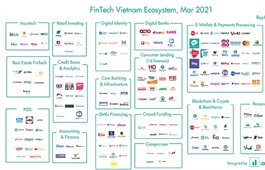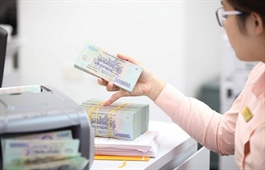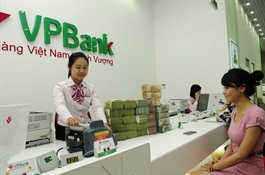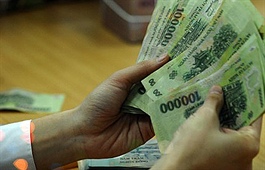Admin fees continue to clog activity
Admin fees continue to clog activity
Major fees, both official and unofficial, alongside long processing times and cumbersome procedures, are vexing local enterprises attempting to implement investment-related adminstration.
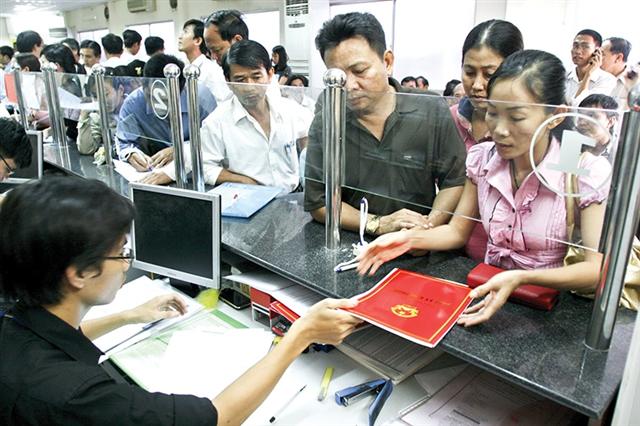
Further reforms could ease cumbersome administrative procedures and entice more foreign investors
|
Nguyen Van Duong, representative of a Chinese-invested auto-making company in a northern province, has spent nearly two years and additional unofficial costs to local authorities to fulfil all necessary construction-related procedures before putting the project into operation.
“All procedures remain complicated and I have had to pay unofficial costs to get my project done,” Duong said, declining to name his company and the province. “It has taken us four months just to obtain a fire prevention certificate from authorised agencies.”
In another case, Do Thi Xuan, vice director of Japanese-invested plastics maker Ikehara Mitsu JSC, said it took her company about six months to complete construction-related procedures. “Businesses are tired of such procedures. They are too complicated and cumbersome, not to mention having to pay extra costs,” Xuan lamented.
Such difficulties faced by these companies have been generally reflected in the Administrative Procedures Compliance Costs Index (APCI) 2020 report released last week in Hanoi by the Government Office and United States Agency for International Development.
The APCI quantifies the cost that individuals and businesses must bear to comply with administrative procedures as per current regulations. To quantify the cost, nearly 3,000 businesses were surveyed in 63 cities and provinces. The survey covered eight groups of key procedures including cross-border trading transactions, business registration, license and work permits, and taxes. Of these groups, the APCI 2020 index for investment-related procedures hit 76.5 out of the maximum 100 points.
“With the total average compliance cost being VND9.15 million ($400), the group of investment-related procedures remains high,” said Government Office Chairman Mai Tien Dung, who is also Chairman of the Prime Minister’s Advisory Council for Administrative Procedure Reform.
Based on region, the largest sum – VND10.9 million ($475) on average – is from enterprises not located in the nation’s key economic regions. Regarding direct cost, on average, each business must pay VND1.8 million ($78) for each procedure.
Furthermore, each business has had to spend over 36 hours to process each of these procedures. The northern province of Bac Ninh ranked first (7.8 hours), while localities in the southern key economic region performed the worst (32 hours).
According to the APCI 2020 report, investment-related policies remain inconsistent, making it difficult for enterprises to process administrative procedures. The report cited many businesses as saying that appraisal of dossiers is subject to many ministries, which are different in implementing procedures.
“Each unit has its own requirements, lengthening the time for dossier preparation, but not satisfying requirements of all units,” the report said. “Investment policies of localities have changed so much, but failed to be published, causing difficulties for dossier preparations.”
As for unofficial costs, 7 per cent of surveyed enterprises said they have had to pay extra so that their investment-related procedures can be processed smoothly. This cost often appears during site visits and meetings for dossier appraisal.
“These costs range from hundreds to thousands of US dollars,” Dung said. “If we fail to remove hurdles for enterprises, they will not be able to develop strongly and Vietnam will not have a strong economy, and be unable to attract more investment.”
Also under the APCI 2020, enterprises had to spend VND63.3 million ($2,752) worth of time cost and direct costs performing environmental procedures in 2020, up from VND45.4 ($1,973) million in 2019.
Dung added, “Cumbersome procedures and unofficial costs not only increase compliance costs, but also upset the domestic business environment, discouraging foreign investors and firms wanting to do business in Vietnam on an equal basis.”







